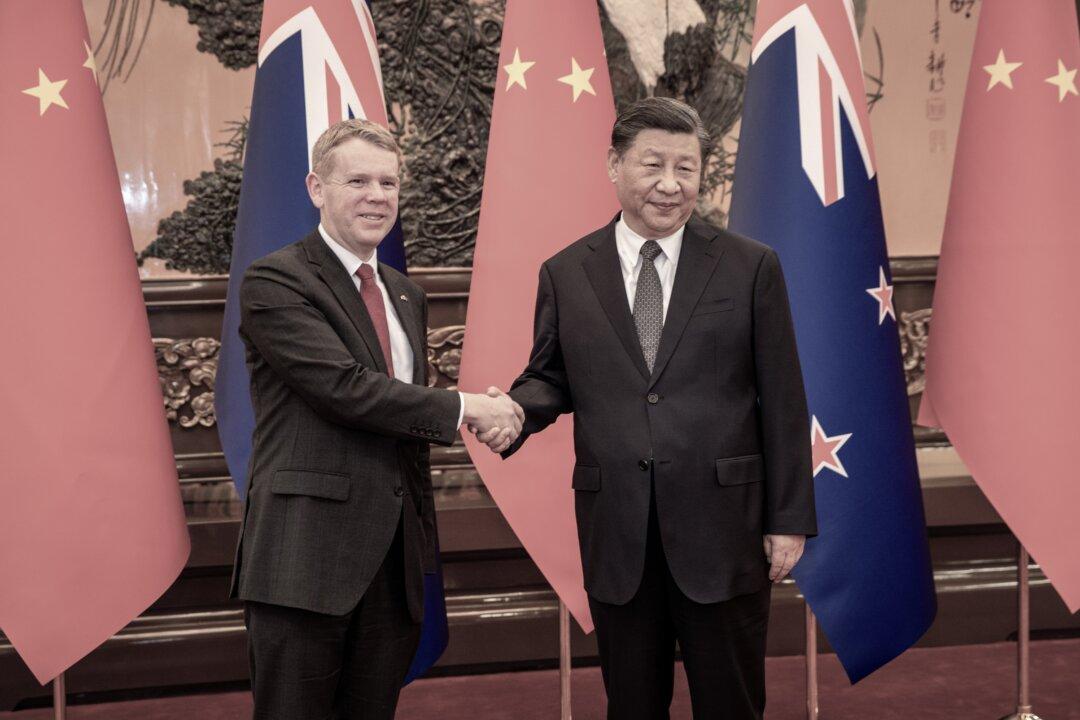New Zealand Prime Minister Chris Hipkins met Chinese leader Xi Jinping in Beijing on Tuesday evening as he tries to bring the message that New Zealand is “open for business” during his five-day China trip.
Hipkins said they covered various topics during their approximately 30-minute meeting, including economic, social, and cultural connections.





